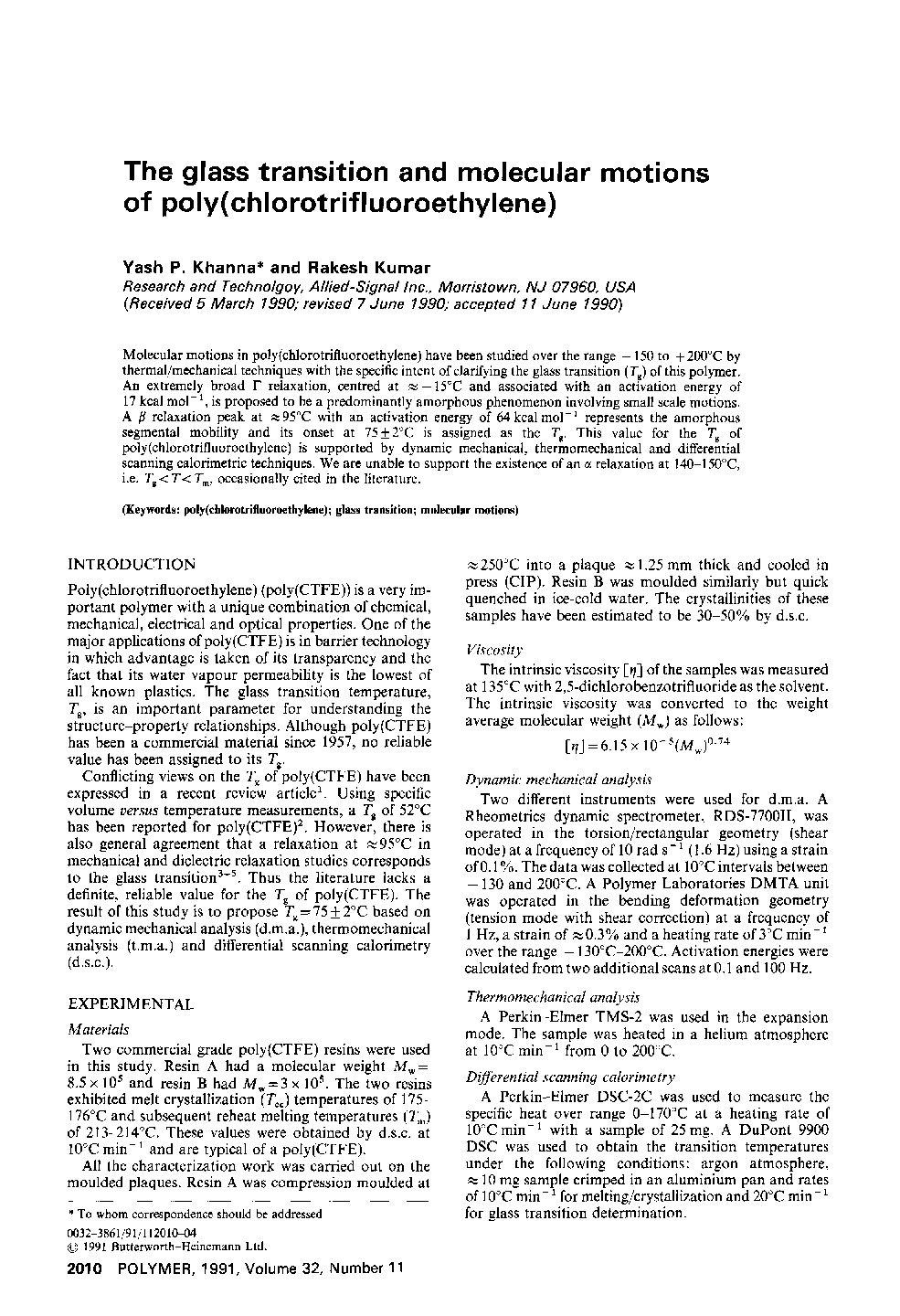| Article ID | Journal | Published Year | Pages | File Type |
|---|---|---|---|---|
| 5199092 | Polymer | 2013 | 4 Pages |
Abstract
Molecular motions in poly(chlorotrifluoroethylene) have been studied over the range â150 to +200°C by thermal/mechanical techniques with the specific intent of clarifying the glass transition (Tg) of this polymer. An extremely broad Î relaxation, centred at â â15°C and associated with an activation energy of 17 kcal molâ1, is proposed to be a predominantly amorphous phenomenon involving small scale motions. A β relaxation peak at â 95°C with an activation energy of 64 kcal molâ1 represents the amorphous segmental mobility and its onset at 75 ± 2°C is assigned as the Tg. This value for the Tg of poly(chlorotrifluoroethylene) is supported by dynamic mechanical, thermomechanical and differential scanning calorimetric techniques. We are unable to support the existence of an α relaxation at 140-150°C, i.e. Tg < T < Tm, occasionally cited in the literature.
Related Topics
Physical Sciences and Engineering
Chemistry
Organic Chemistry
Authors
Yash P Khanna, Rakesh Kumar,
